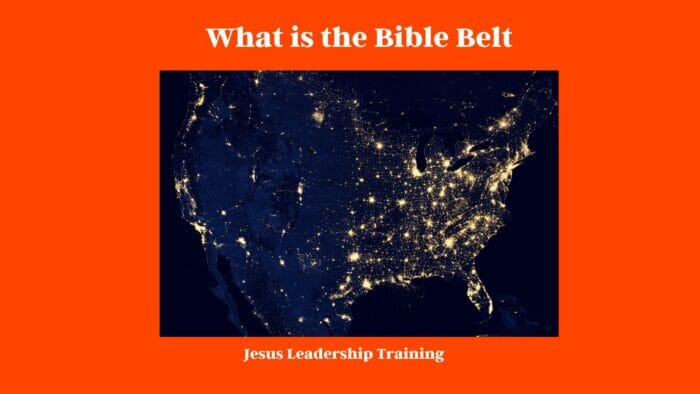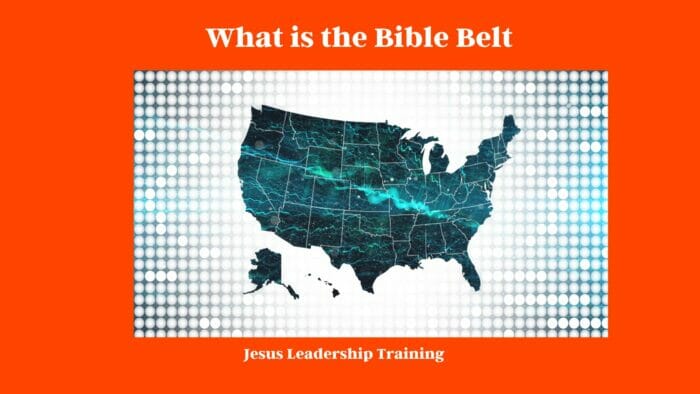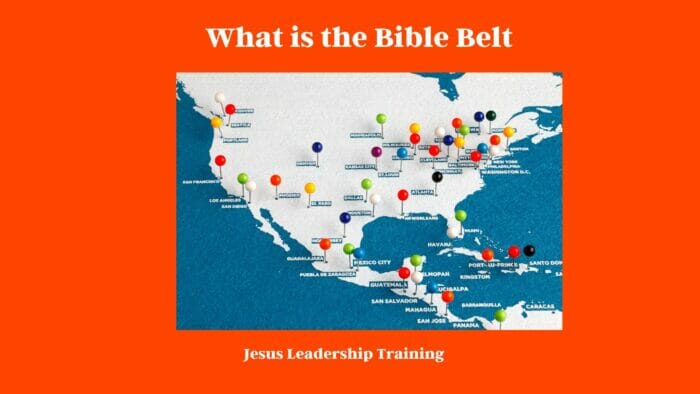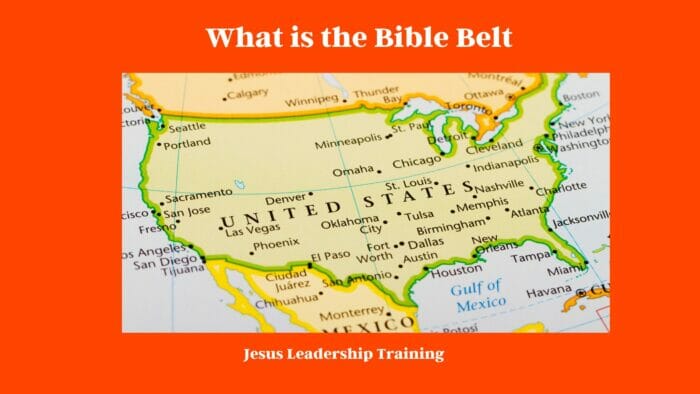What States Make up the Bible Belt – Every region has its own distinctive identity that transcends mere geography, and in the United States, one of the most well-known of these is the Bible Belt. But what is the Bible Belt, exactly? This comprehensive guide provides a deep-dive exploration, pulling back the curtain to reveal its cultural, historical, and political significance.
Table of Contents
What States Make up the Bible Belt
What is the Bible Belt?
The term ‘Bible Belt’ refers to a region in the Southern and Midwestern United States where conservative evangelical Protestantism plays a strong role in society and politics. This region is historically characterized by its deep-rooted religious conviction, primarily within Christian denominations, and its influence spreads into various aspects of daily life, from education and politics to social gatherings and entertainment.
information based on the Pew Research Center’s Religious Landscape Study conducted in 2014, which provided comprehensive statistics on this subject. The table below lists the top 10 most religious states based on the percentage of adults who are “highly religious” according to that study.
2023 Data For Bible Belt States
Top 10 Most Religious States
| Rank | State | Percentage of Highly Religious Adults (2014) |
|---|---|---|
| 1 | Alabama | 77% |
| 2 | Mississippi | 74% |
| 3 | Tennessee | 70% |
| 4 | Louisiana | 69% |
| 5 | Arkansas | 69% |
| 6 | South Carolina | 67% |
| 7 | West Virginia | 67% |
| 8 | Oklahoma | 66% |
| 9 | Georgia | 66% |
| 10 | North Carolina | 65% |
A “highly religious” adult, as defined by the Pew Research Center, is someone who prays daily and attends religious services at least once a week. This is just one way to measure religiosity, and the rankings may change based on different definitions or measures of religiosity. For the most current data, you should consult the latest studies or surveys.

Top 10 Most Non Religious States
data is based on the 2014 Pew Research Center’s Religious Landscape Study. Below is a table showing the states with the lowest rates of highly religious individuals as per the 2014 study.
| Rank | State | Percentage of Highly Religious Adults (2014) |
|---|---|---|
| 1 | Vermont | 34% |
| 2 | New Hampshire | 33% |
| 3 | Maine | 34% |
| 4 | Massachusetts | 33% |
| 5 | Oregon | 31% |
| 6 | Washington | 32% |
| 7 | Hawaii | 32% |
| 8 | Colorado | 30% |
| 9 | Alaska | 31% |
| 10 | Connecticut | 33% |
As stated earlier, the definition of a “highly religious” adult in this study is someone who prays daily and attends religious services at least once a week. The ranking could vary depending on the specific metrics used to gauge religiosity. Please refer to the latest studies or surveys for the most current data.
The Historical Origins of the Bible Belt
The inception of the Bible Belt can be traced back to the early 20th century, though the roots of its religious fervor are much deeper. The Southern and Midwestern states, where the Bible Belt is concentrated, were historically populated by Protestant immigrants from countries like England, Scotland, and Ireland, each carrying their strong religious convictions with them. Over time, this devout religiosity became a hallmark of the region.

Why is it Called the Bible Belt?
The term ‘Bible Belt’ was coined by the American journalist and social commentator H.L. Mencken in the 1920s. Mencken, known for his caustic wit and biting social criticism, used the term to describe the Southern states’ intense religiosity, implying a certain strictness and rigidity in religious matters akin to a tightly fastened belt. The name stuck, and over time, the term ‘Bible Belt’ became synonymous with this region of strong religious conviction.
10 Benefits of Living in a Bible Belt State
The term “Bible Belt” typically refers to the southeastern region of the United States, known for its strong Protestant Christian culture and frequent church attendance. Living in this region can provide various benefits, especially for those who identify with or are interested in this culture. Below is a table summarizing some of the potential benefits.
| Benefits | Description |
|---|---|
| 1. Strong Faith Community | A significant part of living in a Bible Belt state is the presence of a large and active faith community. This can provide spiritual support, a sense of belonging, and opportunities for fellowship and community service. |
| 2. Frequent Church Events and Activities | Churches in these areas often host a wide range of events, activities, and programs for various age groups. These can serve as opportunities for community interaction, spiritual growth, and charity work. |
| 3. Religious Education Options | Bible Belt states typically have numerous religious schools and educational programs for those who want their education to align with their faith. |
| 4. Conservative Values | Many people living in Bible Belt states value traditional family structures, conservative politics, and moral teachings based on Christian principles. Those who share these values may feel more at home in these areas. |
| 5. Faith-Based Counseling Services | Many communities in the Bible Belt offer a variety of faith-based counseling services, including marriage and family counseling, addiction recovery programs, and grief counseling. |
| 6. Religious Freedom | In Bible Belt states, public expressions of faith are more commonplace and generally well-received, compared to other areas where such expressions might be less common. |
| 7. Opportunities for Christian Leadership and Ministry | With many churches and religious organizations in these areas, there are ample opportunities for individuals called to Christian leadership or ministry roles. |
| 8. Abundance of Christian Literature and Media | There’s often a higher demand and supply of Christian books, music, and other media in these areas, providing individuals with a wide range of faith-affirming materials. |
Please note that the benefits listed above can depend heavily on personal beliefs and the specific community within the Bible Belt where one resides.

Mapping the Bible Belt
Defining the exact boundaries of the Bible Belt can be a challenging task, as its influence extends beyond clear-cut geographical lines. However, certain states and regions have a stronger association with the term due to their historical, cultural, and political leanings.
Which States Make Up the Bible Belt?
Broadly speaking, the Bible Belt encompasses much of the Southern United States, extending up into the Midwest. This includes states like Alabama, Mississippi, Tennessee, Kentucky, Georgia, North and South Carolina, Arkansas, Oklahoma, Kansas, and parts of Texas, Missouri, and Virginia. These states are typically characterized by a high concentration of Evangelical Protestants and conservative Christian values.
Bible Belt Approximate Populations
It’s important to note that there’s no universal agreement on which states are included in the “Bible Belt.” Typically, this term refers to a group of states in the Southern United States where Protestant (particularly evangelical) Christianity plays a particularly strong role in society and politics.
Here’s a rough breakdown of the estimated populations (as of my last knowledge cutoff in September 2021) of some states traditionally considered part of the Bible Belt:
| State | Estimated Population (2021) |
|---|---|
| Alabama | 5.03 million |
| Arkansas | 3.04 million |
| Georgia | 10.8 million |
| Kentucky | 4.48 million |
| Louisiana | 4.66 million |
| Mississippi | 2.97 million |
| North Carolina | 10.7 million |
| Oklahoma | 4.02 million |
| South Carolina | 5.28 million |
| Tennessee | 6.91 million |
| Texas | 29.9 million |
| Virginia | 8.65 million |
Please note, these estimates might have changed beyond my knowledge cutoff in September 2021. Please consult the latest census or population data for the most current figures.
Variations Within the Bible Belt
While the Bible Belt shares a common thread of deep-rooted religiosity, there’s a significant variation within the region. For instance, the Appalachian region within the Bible Belt is known for its distinct religious traditions that often differ from those in the Deep South. This variation stems from differences in historical settlement patterns, cultural heritage, and social-economic conditions.
Cultural Aspects of the Bible Belt
The culture of the Bible Belt is, unsurprisingly, heavily influenced by religious beliefs. This religious underpinning manifests itself in various aspects of life, from family structures and community gatherings to educational institutes and political views.
Family and Community in the Bible Belt
In the Bible Belt, family and community life is often deeply intertwined with religious practices. Church attendance is high, and religious gatherings, whether Sunday services or Bible study groups, are common social events. The family structure tends to lean towards traditional norms, with emphasis on marriage and raising children within the
faith.
Education and the Bible Belt
The influence of religion also extends into the educational sphere within the Bible Belt. Many schools incorporate religious teachings into their curriculum, and there’s a higher prevalence of private Christian schools and homeschooling compared to other regions. Controversial topics like evolution and sexual education often face challenges and are sometimes presented within a religious framework.
Available Higher Education opportunities in the Bible Belt
There are numerous higher education opportunities in the region of the United States traditionally referred to as the “Bible Belt.” The following table lists a few notable examples of public and private universities in each state, including both secular and religiously affiliated institutions.
| State | Higher Education Institutions |
|---|---|
| Alabama | University of Alabama, Auburn University, Samford University |
| Arkansas | University of Arkansas, Arkansas State University, Harding University |
| Georgia | University of Georgia, Georgia Tech, Emory University |
| Kentucky | University of Kentucky, University of Louisville, Asbury University |
| Louisiana | Louisiana State University, Tulane University, Loyola University New Orleans |
| Mississippi | University of Mississippi, Mississippi State University, Mississippi College |
| North Carolina | University of North Carolina at Chapel Hill, Duke University, Wake Forest University |
| Oklahoma | University of Oklahoma, Oklahoma State University, Oral Roberts University |
| South Carolina | University of South Carolina, Clemson University, Furman University |
| Tennessee | University of Tennessee, Vanderbilt University, Belmont University |
| Texas | University of Texas, Texas A&M University, Baylor University |
| Virginia | University of Virginia, Virginia Tech, Liberty University |
This is not an exhaustive list and there are many other excellent universities, colleges, and community colleges in these states. Each institution has its own strengths, so prospective students should conduct thorough research to find the best fit for their specific academic and career goals.
Political Landscape of the Bible Belt
The Bible Belt is a significant player in American politics, with its religious convictions often shaping its political leanings. The region is predominantly conservative, favoring political candidates and policies that align with its religious values.
Bible Belt and American Politics
Historically, the Bible Belt has been a stronghold for the Republican Party, especially on issues like abortion, same-sex marriage, and religious freedom. However, it’s essential to note that political views can vary within the region, and there are pockets of liberal and progressive thought, especially in urban areas and among younger generations.
9 Conservative Values that are Common in the Bible Belt States
The term “Bible Belt” is used to describe a region in the United States known for its strong conservative and Christian values. Here is a table highlighting some common conservative values in these states:
| Conservative Values | Description |
|---|---|
| Traditional Family Values | Emphasize on traditional family structure, often viewed as a nuclear family with distinct gender roles. Marriage is seen as a sacred institution. |
| Religious Observance | Regular church attendance, Bible study, and other religious practices are common and widely accepted. There is a strong belief in Christian principles. |
| Pro-life | Opposition to abortion due to religious belief in the sanctity of life from conception. |
| Limited Government | Favor for smaller government with fewer regulations on individuals and businesses, except in areas considered moral issues. |
| Second Amendment Rights | Strong support for the right to own and bear arms, often citing self-defense, hunting, and protection against tyranny as reasons. |
| Patriotism | A strong sense of national pride and respect for American traditions and symbols. |
| Traditional Education | Emphasis on standardized testing, basic skills, and conservative perspectives in education. Some resistance to progressive educational trends. |
| Fiscal Conservatism | Belief in lower taxes, limited government spending, and minimal government debt. |
| Personal Responsibility | Emphasis on individual freedom and responsibility rather than relying on government assistance. |
Please note that while these values are often associated with the Bible Belt, not all individuals in these areas necessarily hold these views. Furthermore, even among those who do, there can be considerable diversity in how these values are prioritized and interpreted.
Impact of the Bible Belt on Elections
The Bible Belt’s strong conservative leanings often play a critical role in national elections. Candidates who can appeal to the religious sensibilities of this region often have an edge, and many Presidential hopefuls make it a point to campaign heavily in these areas.
FAQs
1. What is the Bible Belt?
The Bible Belt is a region in the Southern and Midwestern United States characterized by a strong role of conservative evangelical Protestantism in society and politics.
2. How did the Bible Belt get its name?
The term ‘Bible Belt’ was coined by American journalist H.L. Mencken in the 1920s to describe the intense religiosity of the Southern states.
3. Which states are part of the Bible Belt?
The Bible Belt includes states like Alabama, Mississippi, Tennessee, Kentucky, Georgia, North and South Carolina, Arkansas, Oklahoma, Kansas, and parts of Texas, Missouri, and Virginia.
4. How does the Bible Belt influence American politics?
The Bible Belt, with its strong conservative leanings, often plays a critical role in national elections, favoring candidates and policies that align with its religious values.
5. Are there variations within the Bible Belt?
Yes, while the Bible Belt shares a common thread of religiosity, there is significant variation within the region due to differences in historical settlement patterns, cultural heritage, and socio-economic conditions.
6. How does the Bible Belt’s culture differ from other regions?
The culture of the Bible Belt is heavily influenced by religious beliefs, which manifest in various aspects of life, including family structures, community gatherings, educational institutes, and political views.
Final Thoughts – What is the Bible Belt
Understanding ‘What is the Bible Belt?’ involves more than just mapping out a group of states. It’s about delving into the rich tapestry of religion, culture, and politics that defines this region. As we’ve seen, the Bible Belt is a unique blend of historical origins, religious fervor, cultural practices, and political influences that leaves a distinct imprint on America’s societal landscape.
Best Bible Encyclopedias and Dictionaries
Below is a table featuring some highly regarded Bible Encyclopedias and Dictionaries along with their publishers and websites where they can be found or purchased.
| Title | Publisher | Website |
|---|---|---|
| The International Standard Bible Encyclopedia | Eerdmans | Eerdmans |
| Zondervan’s Pictorial Bible Dictionary | Zondervan | Zondervan |
| Easton’s Bible Dictionary | Thomas Nelson | Thomas Nelson |
| Holman Illustrated Bible Dictionary | B&H Publishing Group | B&H Publishing Group |
| The New Unger’s Bible Dictionary | Moody Publishers | Moody Publishers |
| HarperCollins Bible Dictionary | HarperOne | HarperOne |
| Vine’s Complete Expository Dictionary of Old and New Testament Words | Thomas Nelson | Thomas Nelson |
You can generally find these resources on the publishers’ websites, as well as other online book retailers such as Amazon or Christianbook. It’s always good practice to confirm availability and review additional details on the specific websites or other reliable online bookstores.





